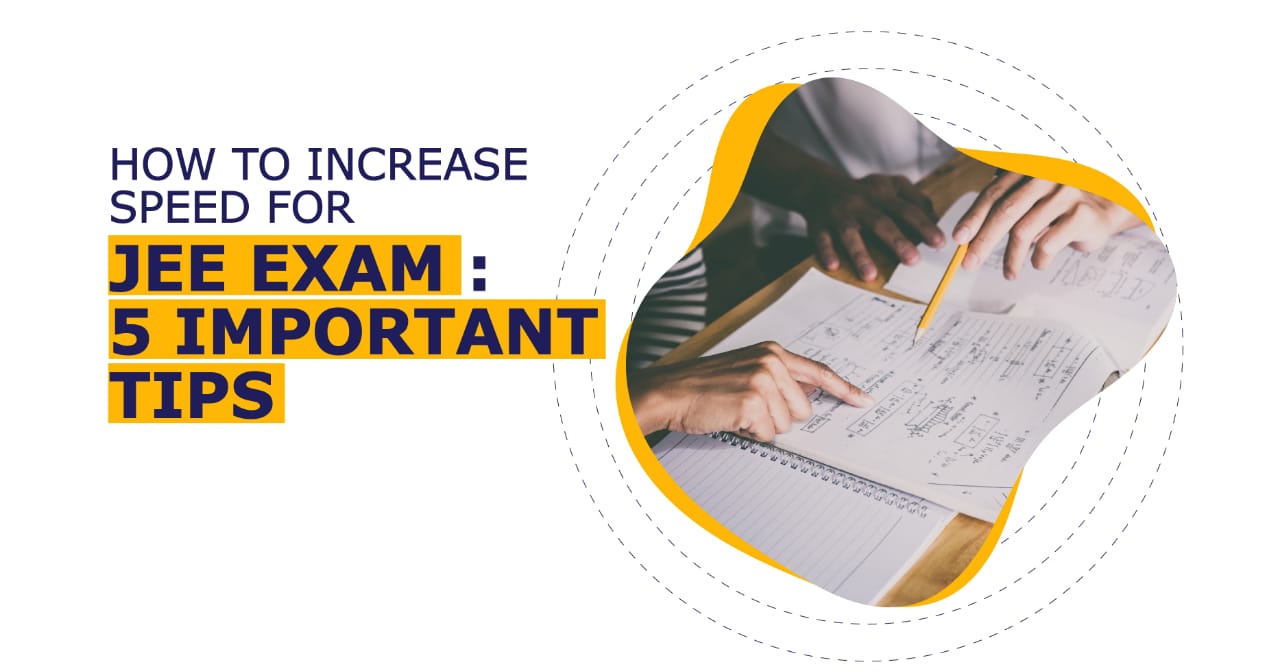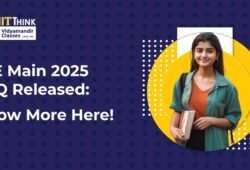HOW TO INCREASE SPEED FOR JEE EXAM : 5 IMPORTANT TIPS
 Posted On
Posted On
2,263 total views, 4 views today
“Practise like you’ve never won. Play like you’ve never lost.”
: Michael Jordan
Practice can do wonders! It’s not about how perfect you are, it’s all about your progress. And it’s okay to make mistakes, it’s okay to get laid off the track, but stay committed to your dreams and train until you’re ready for the wrestle. One can increase speed and accuracy of any given task while putting in effort of practicing. The same is pertinent to the prestigious engineering examination, JEE. With the passing years, the numbers of aspirants are only surging in and with it the complexity and difficulty level of the exam is on the rise. The importance of speed and accuracy is all the more fateful now than it was ever before.
Some perks can help you strengthen your efficiency while reinforcing your accuracy and speed, they are;
• Hard work is seldomly equal to smart work. Before solving questions, you must understand the exam. JEE Mains expects students to answer a question in 2 minutes whereas in JEE Advance you may have to spend 5 minutes on a problem. So judge yourself accordingly.
• We do everything right when it comes to our preparation, but still aren’t to manage our time well in the exam. After giving the paper, you realize that there were some questions that were easy for you but you could not reach them in the given time. First of all, you need to know your potential and choose a subject sequence. After choosing the sequence, you need to omit questions that are taking too much time, especially in Mains. Fix some time for each subject, so that you can at least see all the questions and then go back and solve the questions, the ones you think you can solve in the given time rather than spending too much time on a question. Remember, each question carries similar marks, be it tough or easy. So solve accordingly and maximize your score.
• Sometimes, we are not practicing in the right way. Often students pick hard books or questions, try to solve them, and after many efforts, check the solution and consider the question as done. But such practice is of no use if you do not attempt those typical questions again in the future as you would recall the question as soon as you see one, but won’t be able to reach the final answer.Therefore, start segregating questions, into different categories. What you can do is to single tick the questions that are easy and which you’ll be able to attempt in the first go. Secondly, double tick the very good questions, the ones you can manage to do in the first shot. Lastly, triple tick the questions that seems hard to you and for which you have to lookout for solutions. Therefore, after sometime you’d have collected multiple ticked questions. You can also solve few selected questions a day before the exam. This will thus help you to gain more confidence and a better grasp of the topic.
• Solving single questions and an entire paper are 2 very different things. You need to solve a number of papers to not just commit mistakes but also learn from them and start rectifying them. You can only increase your speed if you start competing with yourself. So solve papers and analyze each one of them, where you lacked and how you could have been more efficient and faster.
• As a general estimate, do not spend more than 15-20 minutes on any 1 question in one attempt. Instead, give repeated attempts over a period of a day or two and only then seek help. This helps you to think faster because no matter when you are attempting it, there is a time limit involved and also a lot of self-reliance as well. Also, for the questions, you require help with, analyze where you went wrong, and modify how you approach questions accordingly.
These are the 5 Important Tips that you must follow…However, there are some must Do’s and Don’t ‘s that you also need to keep in mind:
• Set a timer while practising questions. You should consult your teachers for the tentative time spent on different questions. Give a lot of practice papers as well as full tests of previous year papers. It will give you an accurate idea of your speed and improvement. You can also try different patterns for subjects and types of questions.
• If you don’t have a lot of time to improve your speed then you should ensure that you are going through the whole paper within at least two and a half hours so you don’t miss any easy questions which could fetch you easier marks. Catch the low hanging fruits first!
• Ensure you are not sacrificing accuracy for speed. It is not worth to do seven questions and get two wrong. It is better to do only five instead. Accuracy and speed come from confidence which will come when you practice.
• During preparation, always solve questions till the end and match your answer. Sometimes we substitute the wrong values or make silly calculation errors due to lack of practice.
• Try to remember some tricks for particular types of questions. Some questions in JEE are 30 second questions if you know that trick or formula else they take 5 minutes to do. Identify such questions, do them if you know the trick else look at them in the end.
• Always analyse your past mistakes. You can categorise them into mistakes due to calculation or substitution and mistakes due to conceptual gap. You should try to minimise the first kind by practice and the second kind will be minimised by deep understanding of the topic.
• Keep a track of the questions that taught you a new trick. Also remember, JEE loves questions with elegant solutions. Elegance lies in how easy it is to apply a trick and the magnitude to which it simplifies the problem
• Always solve questions down to their final answer. Many silly mistakes occur in exams because students though well-versed in concepts and very good at identifying the trick involved do not care enough about the mundane calculation part.
• For cracking JEE, you need to be clear in concepts and faster in calculations. The more you solve conceptual questions of PCM, the more you become confident, and hence whenever you see a new question, you recall quicker and solve faster.
[For more tips on JEE, please visit : www.vidyamandir.com]
SPEED = CONFIDENCE
You tend to solve faster if you are more confident, otherwise, you even start checking simple calculations multiple times when you are in doubt. And self-confidence comes with practice only.
Practice to improve efficiency is a well acquainted truth. Despite giving number of practice papers, speed and accuracy is always considered to be the topmost concerns for everyone alike. Finishing paper in time not only takes a lot of practice but it also incorporates an in-depth knowledge of the subject. Always know that no matter what, you can always do better. Probably your best work is about to happen. And remember, “The more you sweat in practice, the less you’’ll bleed in war.”



